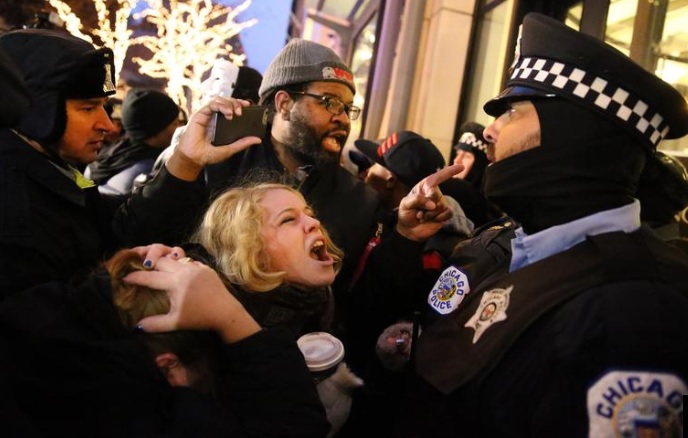

By Steve Pomper
Some people, too many people, will watch police officers performing their duties, disapprove, and assume they know how to do the job better than those trained to do it. I’m not sure this arrogance is directed more at any other profession.
Let’s say you’re walking on the sidewalk in a busy small business district. You notice a man strolling along the opposite sidewalk. Suddenly, three patrol cars, sirens chirping, red and blue lights flashing, drive up, stop, and the officers get out of their cars. They point guns at the man, order him to get on the ground, and to outstretch his arms.
One officer remains off to the side and still has the suspect at gunpoint. The two other officers holster their guns, approach, pat the man down, and then place him in handcuffs. They lift him to his feet and put him in a patrol car.
Bystanders get angry. They yell, “You arrested that guy for no reason.” “He wasn’t doing anything wrong.” They continue their harangue replete with a litany of colorful invectives. The officers might want to stay behind to explain themselves, but that would probably just make the situation worse.
However, if you could stay behind without starting a riot, and people would actually listen, you could explain why the officers did what they did. You could explain to the concerned citizens that in roll call that morning, your sergeant informed you about a wanted sex offender seen loitering in that area. The sergeant gave officers a description, circulated a photograph, and said the suspect had a felony arrest warrant for rape of a twelve-year-old girl. An officer patrolling the area recognized the suspect from the description and photo, called for backup, and they made the arrest.
There was a time when people might have changed their perspective after such an explanation. Not likely today. Many people don’t want to understand what police officers deal with. They prefer to maintain their myths about cops. With officers not getting any benefit of the doubt from many quarters, too many people assume the worst of police officers.
During one shift, my partner and I were driving behind a car and noticed one of the rear wheels wobbling. Worse, it was one of those anemic temporary spares. We stopped the car, and I went up to talk to the driver. It was a teenaged boy who said he’d just had a flat and had changed the tire—poorly.
We told him about the wobble and said we’d help him put the spare back on correctly. We were standing behind his car looking into the trunk for his jack and tire iron. Suddenly, a man walked up on the sidewalk and said, “Hey, you can’t do that.”
My partner and I looked at each other, and I said to the man, “Do what?”
He ignored us, looked directly at the young man and said, “They need a warrant for that.”
I said, “We need a warrant to help him fix his tire?”
A look of grudging understanding washed over him, but he wasn’t about to apologize. Instead, he strode off in a genuine huff. I followed him for a moment. Asking him why he’d assumed the worst of us. He ignored me, opened a gate, and walked to his front door. Before entering, he turned, mumbled something about cops kicking in a friend’s door, and then finished by going in and slamming the door.
People do themselves an injustice when they negatively assume they know what a police officer is doing. I’ve had people expect me to stop what I’m doing, even in dangerous situations, to “explain my actions” to them. They seem to think they have a right to know on the spot. Obviously, in the moment, during a dynamic incident, officers don’t have the luxury of explaining their actions to every person who asks.
In fact, if you insist on badgering an officer for information during an ongoing incident, you’ll likely find yourself in the muck of your very own police incident—in handcuffs and on your way to jail for obstruction.
This is where governments at all levels do such a poor job of educating the public about what cops do, why they do it, and how they do it. It’s just too easy to keep the public ignorant of police procedures, especially when so many government leaders hold the same negative view of the police.
How about broadcasting public service announcements (PSA) showing what police expect from people when they’re stopped for traffic infractions, especially at night, or even if police officers mistake them for suspects? Vignettes showing police interactions from the officer’s perspective would be helpful. Cops aren’t psychic. They don’t know you are not dangerous or that you’re not who they’re looking for if you happen to match the suspect description.
Think about this. If a cop was looking for a person suspected of committing a crime against you, wouldn’t you want the officer to detain and investigate any possible suspect? Or would you expect the officer somehow to know that the person matching the suspect description is not the person you’re looking for?